AMD Ryzen 9 5980HS Cezanne Review: Ryzen 5000 Mobile Tested
by Dr. Ian Cutress on January 26, 2021 9:00 AM EST- Posted in
- CPUs
- AMD
- Vega
- Ryzen
- Zen 3
- Renoir
- Notebook
- Ryzen 9 5980HS
- Ryzen 5000 Mobile
- Cezanne
CPU Tests: Legacy and Web
In order to gather data to compare with older benchmarks, we are still keeping a number of tests under our ‘legacy’ section. This includes all the former major versions of CineBench (R15, R11.5, R10) as well as x264 HD 3.0 and the first very naïve version of 3DPM v2.1. We won’t be transferring the data over from the old testing into Bench, otherwise it would be populated with 200 CPUs with only one data point, so it will fill up as we test more CPUs like the others.
The other section here is our web tests.
Web Tests: Kraken, Octane, and Speedometer
Benchmarking using web tools is always a bit difficult. Browsers change almost daily, and the way the web is used changes even quicker. While there is some scope for advanced computational based benchmarks, most users care about responsiveness, which requires a strong back-end to work quickly to provide on the front-end. The benchmarks we chose for our web tests are essentially industry standards – at least once upon a time.
It should be noted that for each test, the browser is closed and re-opened a new with a fresh cache. We use a fixed Chromium version for our tests with the update capabilities removed to ensure consistency.
Mozilla Kraken 1.1
Kraken is a 2010 benchmark from Mozilla and does a series of JavaScript tests. These tests are a little more involved than previous tests, looking at artificial intelligence, audio manipulation, image manipulation, json parsing, and cryptographic functions. The benchmark starts with an initial download of data for the audio and imaging, and then runs through 10 times giving a timed result.
We loop through the 10-run test four times (so that’s a total of 40 runs), and average the four end-results. The result is given as time to complete the test, and we’re reaching a slow asymptotic limit with regards the highest IPC processors.
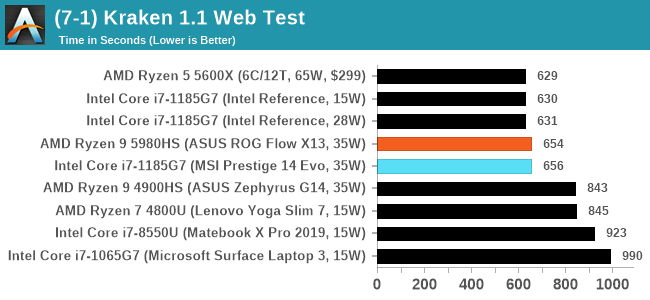
Google Octane 2.0
Our second test is also JavaScript based, but uses a lot more variation of newer JS techniques, such as object-oriented programming, kernel simulation, object creation/destruction, garbage collection, array manipulations, compiler latency and code execution.
Octane was developed after the discontinuation of other tests, with the goal of being more web-like than previous tests. It has been a popular benchmark, making it an obvious target for optimizations in the JavaScript engines. Ultimately it was retired in early 2017 due to this, although it is still widely used as a tool to determine general CPU performance in a number of web tasks.
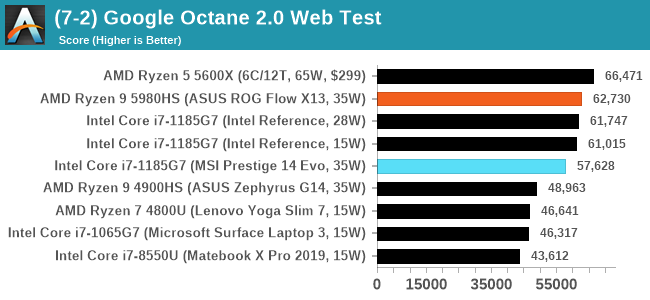
Speedometer 2: JavaScript Frameworks
Our newest web test is Speedometer 2, which is a test over a series of JavaScript frameworks to do three simple things: built a list, enable each item in the list, and remove the list. All the frameworks implement the same visual cues, but obviously apply them from different coding angles.
Our test goes through the list of frameworks, and produces a final score indicative of ‘rpm’, one of the benchmarks internal metrics.
We repeat over the benchmark for a dozen loops, taking the average of the last five.
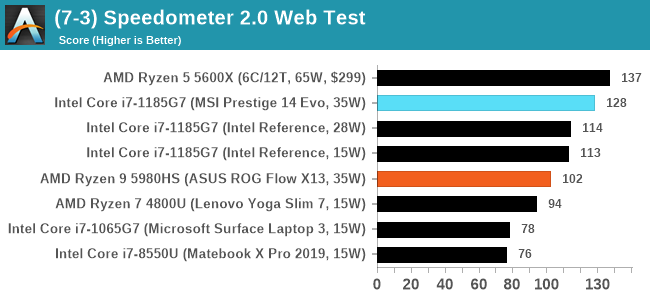
Legacy Tests
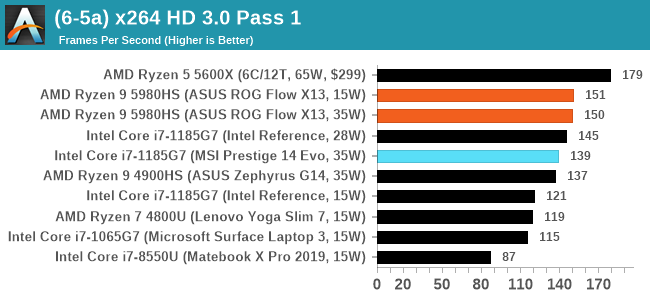
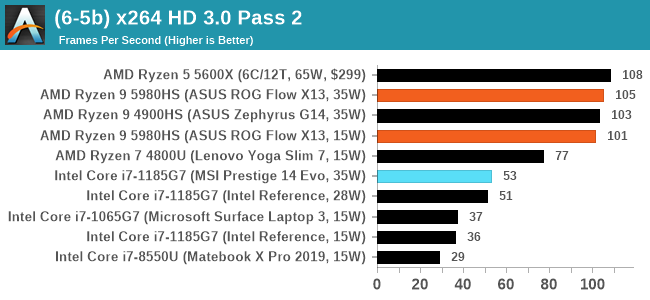
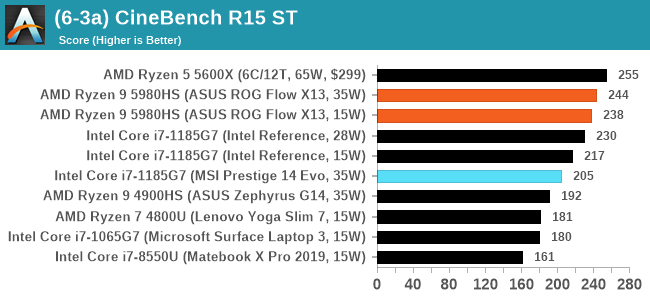
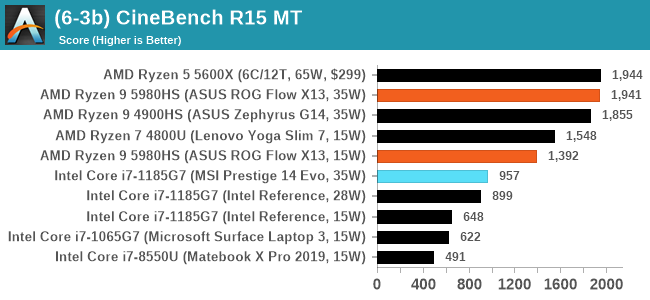


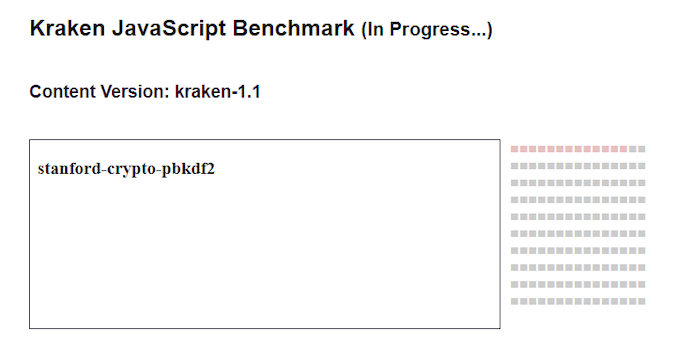
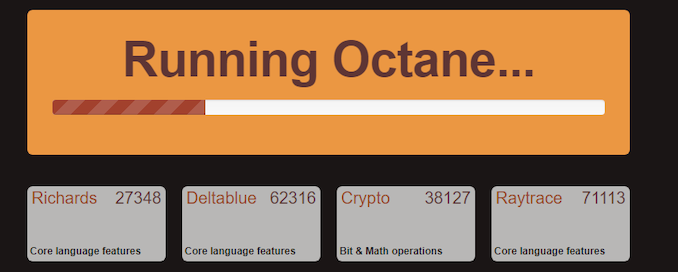
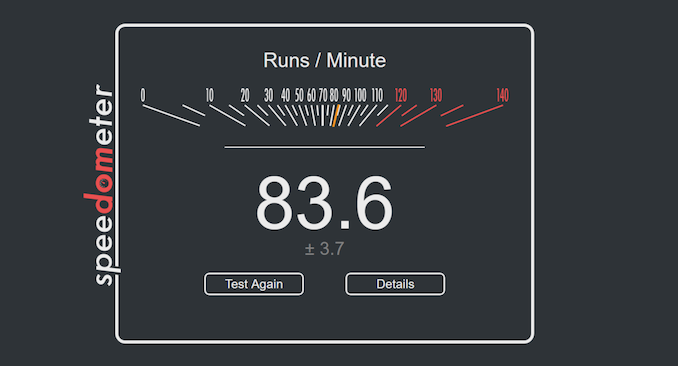








218 Comments
View All Comments
t.s - Tuesday, January 26, 2021 - link
Good, AMD! Just use Vega GPU for your next SOC, ryzen 6000 series. Make it '5 years with Vega'.YB1064 - Tuesday, January 26, 2021 - link
Looking forward to the ASUS laptop (used here) review. Looks like a killer implementation. Intel is now the poor man's AMD!medi05 - Wednesday, January 27, 2021 - link
I wonder, what happens to the green-blue "no AMD Laptop with GPU higher than 2060" deal now.(Polish site purepc reported that)
Unashamed_unoriginal_username_x86 - Wednesday, January 27, 2021 - link
Gone, reduced to atoms. Something like half of the gaming laptops I've seen offer Ryzen with a 3070 or 3080Aninajoe - Sunday, January 31, 2021 - link
easy job online from home. I have received exactly $20845 last month from this home job. Join now this job and start making extra cash online. salary8 . comZoZo - Tuesday, January 26, 2021 - link
Yes, they don't know how to make APUs with RDNA2, otherwise the new generation of consoles would've had that.Wait...
t.s - Tuesday, January 26, 2021 - link
They have no reason to use RDNA2, cause for IGP, theirs have no competition. In other words, they just lazy, or content with what they have now.ZoZo - Tuesday, January 26, 2021 - link
No competition? If I remember correctly, Xe in Tiger Lake beats the Vega 8 by significantly more than a margin of error.schujj07 - Tuesday, January 26, 2021 - link
What are you talking about? Look at the iGPU tests in this review. The Xe iGPU beats Vega 8 in 2 out of 8 tests with both having the 4267MHz RAM. While the Xe iGPU is much better than before, it still cannot beat AMD according to these benchmarks.TelstarTOS - Tuesday, January 26, 2021 - link
both iGPU sucks. A 1660ti or better is mandatory for any decent gaming (raising laptop prices a LOT). I also see this a fail from AMD - they have the technology but decided not to use it.